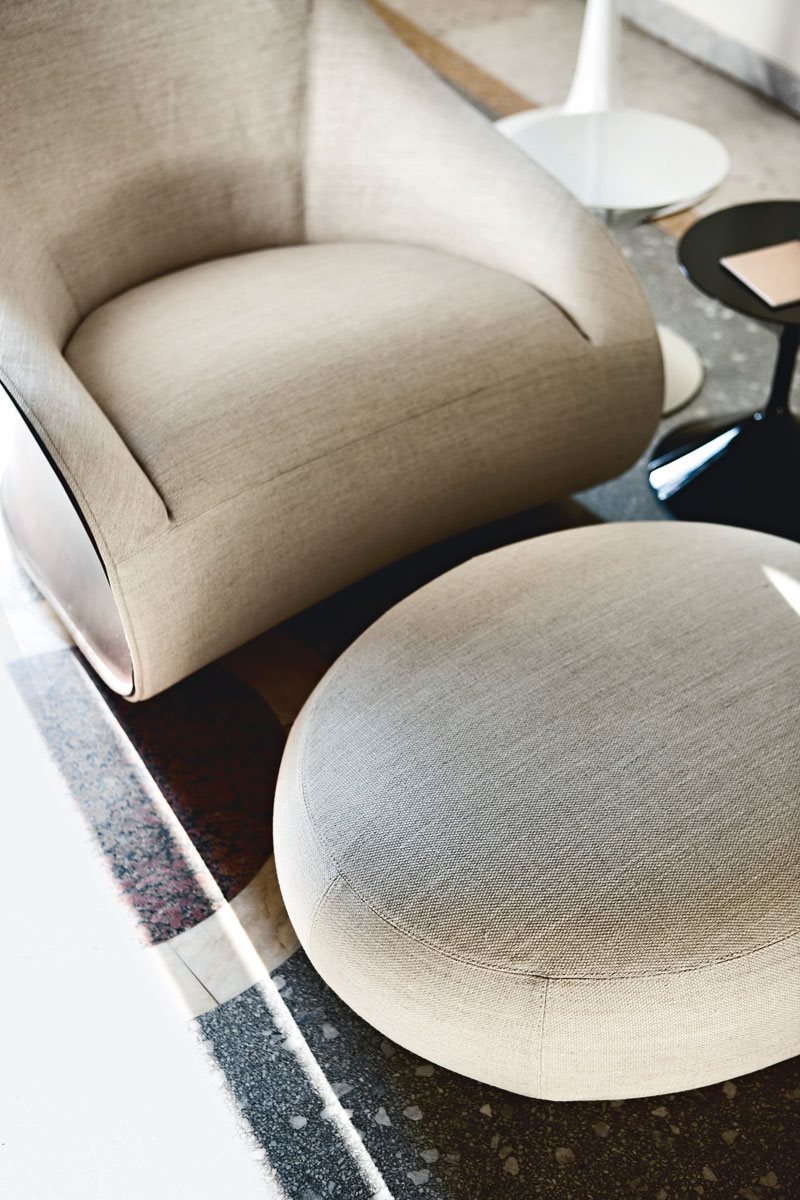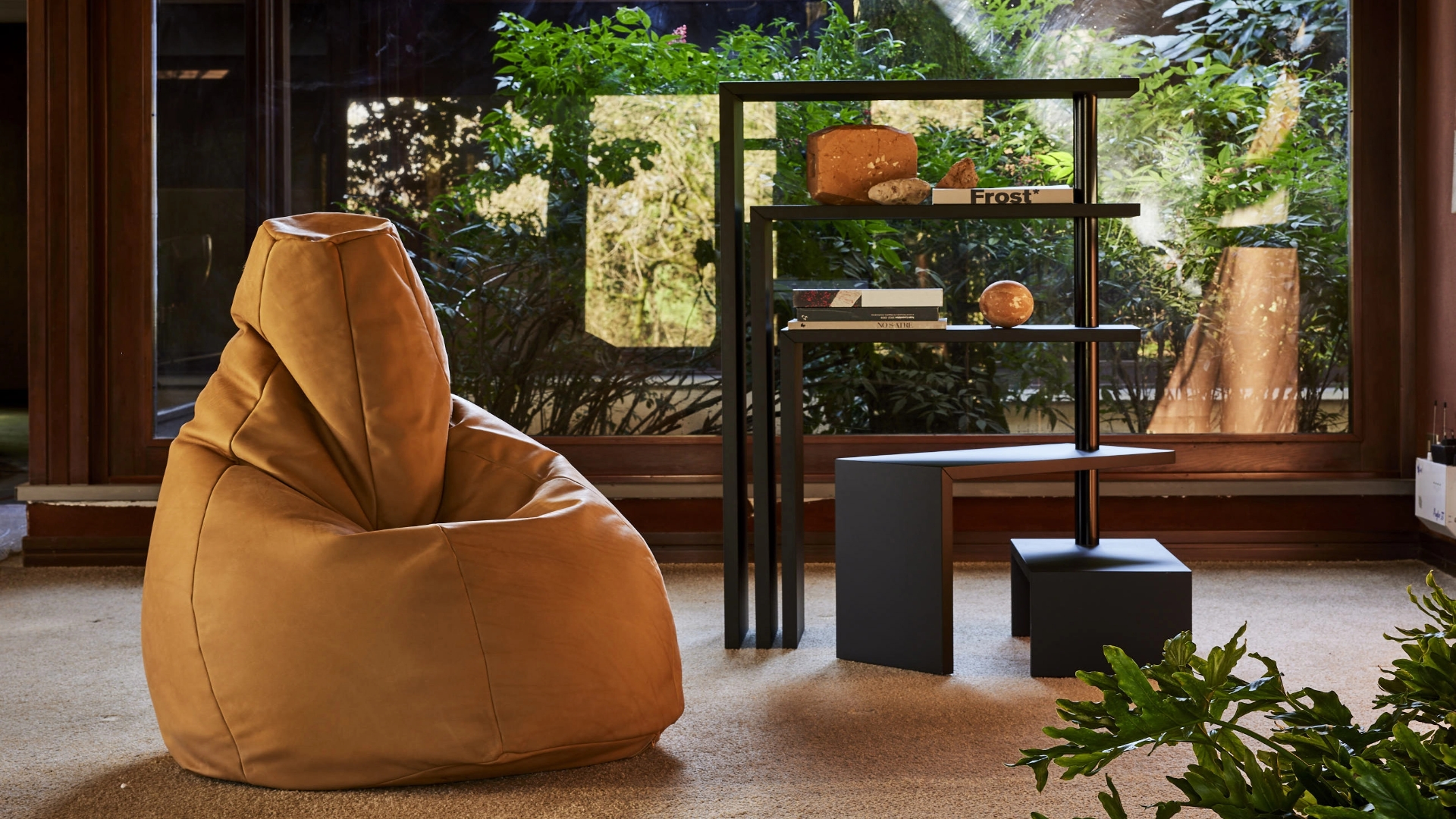Design by Noé Duchaufour Lawrance
When
I visited Italy to improve my studies on sculpture 10 years ago, I got to know
and appreciate design. I had a real passion for works by Ron Arad and Carlo
Mollino, the former was modern, and the latter classical. Their two visions had
in common the quest for curved, organic shapes, dynamic items that seemingly
describe gestures made when using them. I find it a timeless style because it
precisely meets the requirements of modern living». Thus Noé Duchaufour
Lawrance introduces the story of his progress in contemporary design that is
packed with successful experiences, like the items designed for Zanotta, namely
the table and console table Dessouschic (2005, in the catalogue with Edizioni)
and the armchair Derby, which was presented at the furniture fair in 2009. This
is an enveloping, ergonomic bergère armchair; a harmonious, sinuous item
centred on a solid swivel steel base. «To produce it Zanotta created a
manufacturing process based on top quality industrial engineering», says
Duchaufour Lawrance. «The body is externally made of stiff polyurethane
upholstered with either leather or hide. Inside, the chair has elastic strip
springing and multiple-density polyurethane padding. The technological solution
of moulding the body along with the elastic strip springing creates a
harmonious unit with the padding. An additional layer of polyurethane adapted
to the seat enhances softness.» The armchair’s overall shape issues from a
careful study of the seat-back relationship. It is rather innovative since the
production process organises the sequence of each component’s manufacturing
processes. They are first individually moulded, and then calibrated, assembled
and finished with a highly technological sartorial system. The result is a very
comfortable armchair that welcomes the body with an organically perfect shape.
It is no mere chance that the young French designer refers – in a world of
interior and industrial design – to a group of creative designers who are
inspired by the elements and shapes of nature and whose masters count the
beloved Mollino and designers like Ross Lovegrove. «Lovegrove’s approach to
this world of industrial items has always fascinated me», says Duchaufour
Lawrance, «and since I come from sculpture, I think I have some excellent
opportunities to practice this profession. As a sculptor one acquires solid
knowledge of how materials react to torsion and movement. One learns to obtain
forms and volumes, and studies subjects such as anatomy, geometry and
ergonomics. One becomes expert in the strengths and thrusts exerted by the body
on forms. I have loved art and nature since I was very young. I spent a lot of
time moulding soft, sinuous items with my hands».

.jpg)
